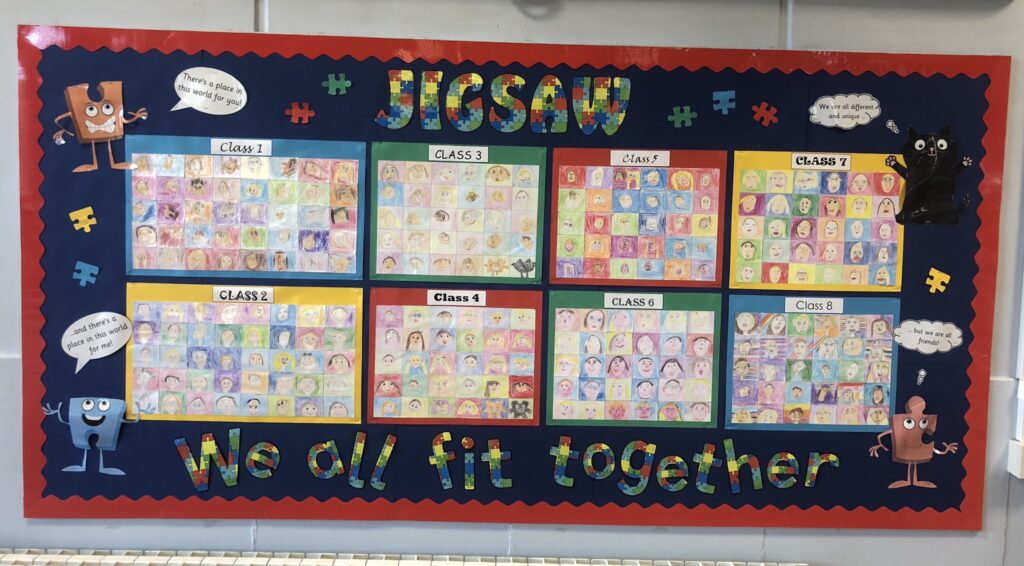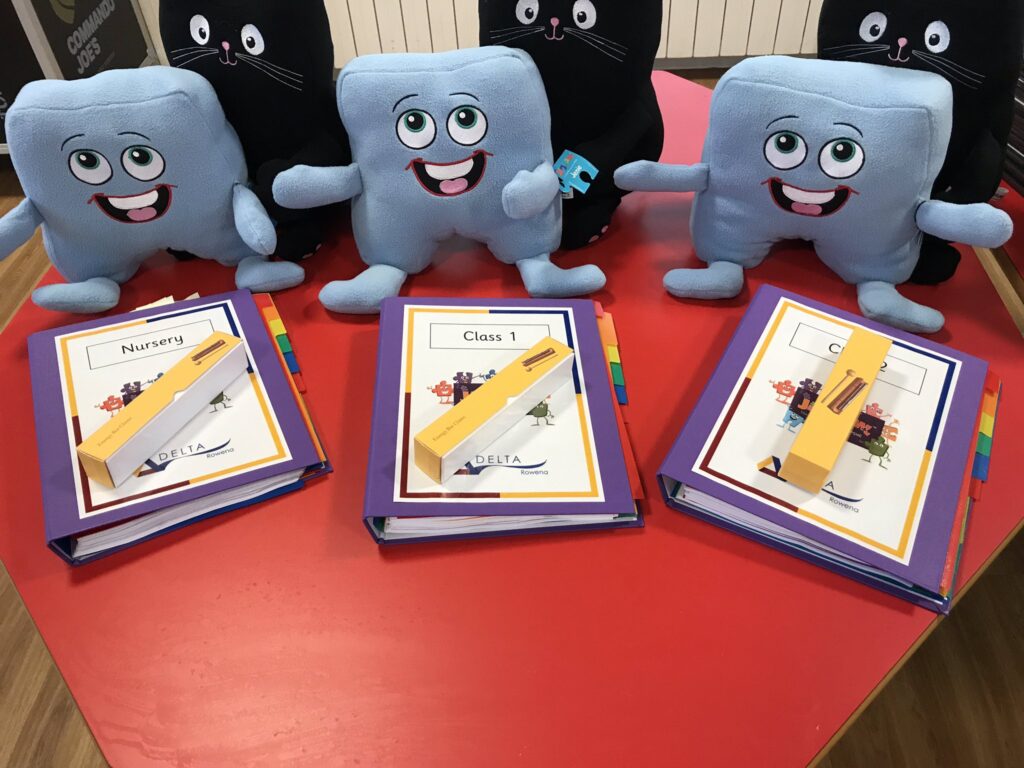PSHE / RSE
PSHE is at the heart of our broad and balanced curriculum. Our PSHE curriculum enables our children to be equipped with the skills, knowledge and experience to succeed in life. It aims to help them to understand how they are developing personally, socially and emotionally whilst allowing children to understand and value how they fit in and contribute to the School and wider society. The PSHE curriculum we offer equips children with relevant and meaningful content which is supported through a strong emphasis on emotional literacy, building resilience and nurturing children’s physical and mental health. It also allows us to consider the needs of individual children and support their needs.
At Rowena Academy we use the Jigsaw scheme of work, a clear and comprehensive scheme which is in line with the National Curriculum.
Children take part in weekly JIGSAW lessons which give them the opportunity to explore, clarify and challenge their own and others attitudes, beliefs, rights and responsibilities. Throughout the school there is a focus on PSHE and developing children’s emotional literacy. As a Thrive school children’s social and emotional development is embedded into the fabric of our Curriculum and supports children, alongside the implementation of Jigsaw, to develop their social and emotional skills and prepare them to succeed. Cross curricular links are made between subjects, for example, with science.
Children enjoy their PSHE learning and are equipped with the skills to develop positive and healthy relationships with their peers now and in the future. If children are able to feel safe and listened to this will in turn have a positive impact on their ability to learn. The skills that they learn within PSHE lessons supports them to become life-long learners. Alongside our Thrive approach, by tracking children’s social and emotional development, we can assess the progress that children have made and offer individual support where needed. This leads to our children making excellent progress from their unique starting points.
‘Personal, social and health education (PSHE) helps to give pupils the knowledge, skills and understanding they need to lead confident, healthy, independent lives and to become informed, active, responsible citizens.’
(Guidelines for PSHE) and Citizenship, Curriculum 2000)
‘Today’s children and young people are growing up in an increasingly complex world and living their lives seamlessly on and offline. This presents many positive and exciting opportunities, but also challenges and risks. In this environment, children and young people need to know how to be safe and healthy, and how to manage their academic, personal and social lives in a positive way.’
Excerpt from the foreword written by the secretary of State for Education-
(Relationships Education, Relationships and Sex education and Health Education 2019)
What is PSHE?
PSHE Education (Personal, Social and Health Education) is a planned programme of learning through which children and young people acquire the knowledge, understanding and skills they need to successfully manage their lives – now and in the future. As part of a whole-school approach, PSHE Education develops the qualities and attributes pupils need to thrive as individuals, family members and members of society.
What do schools have to teach in PSHE Education?
According to the National Curriculum, every school needs to have a broad and balanced curriculum that:
• promotes the spiritual, moral, social, cultural, mental and physical development of pupils at the school;
• prepares pupils at the school for the opportunities, responsibilities and experiences of later life;
• promotes British values.
From September 2020, primary schools in England also need to teach Relationships and Health Education as compulsory subjects and the Department for Education strongly recommends this should also include age-appropriate Sex Education.
At Rowena Academy we use the Jigsaw Programme to deliver PSHE and RSE.
What is the Jigsaw PSHE programme?
At Rowena Academy we use a whole school PSHE scheme called Jigsaw. Jigsaw combines PSHE, emotional literacy, mindfulness, social skills and spiritual development. It is designed as a whole school approach, with all year groups working on the same theme (Puzzle) at the same time.
Jigsaw aims to help children know and value who they really are and how they relate to other people in this ever-changing world.
There are six Puzzles (half-term units of work) each with six Pieces (lessons). Every year group studies the same Puzzle at the same time (sequentially ordered from September to July). Each year group is taught one lesson per week and all lessons are delivered in an age- and stage-appropriate way so that they meet children’s needs.
The different puzzle pieces are:
- Being Me In My World
- Celebrating Difference
- Dreams and Goals
- Healthy Me
- Relationships
- Changing Me
Relationships & Sex Education (RSE)
An important part of the Jigsaw PSHE programme is delivered through the ‘Relationships’ and ‘Changing Me’ puzzle pieces which are covered in the summer term.
There are four main aims of teaching RSE:
• To enable children to understand and respect their bodies.
• To help children develop positive and healthy relationships appropriate to their age and development.
• To support children to have positive self-esteem and body image.
• To empower them to be safe and safeguarded.
Each year group will be taught appropriate to their age and developmental stage. At no point will a child be taught something that is inappropriate; and if a question from a child arises and the teacher feels it would be inappropriate to answer, (for example, because of its mature or explicit nature), this information with be shared with you by your child’s class teacher.
Below is a summary of RSE coverage within the Jigsaw scheme for each year group and a “Progression of Skills” document which details exactly what the children will be taught in each Jigsaw puzzle piece and how that progresses through the school.
• Foundation Stage – Growing up: how we have changed since we were babies
• Year 1 – Boys’ and girls’ bodies; naming body parts
• Year 2 – Boys’ and girls’ bodies; body parts and respecting privacy (which parts of the body are private and why this is).
Jigsaw at Rowena Academy



